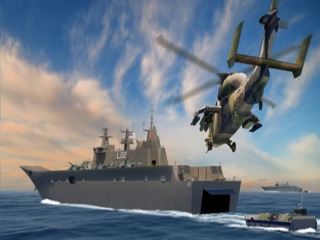A Dangerous Policy of Turkish Containment in the Eastern Mediterranean
By Micha’el Tanchum
July 3, 2019
Turkey's provocative action of sending two drillships into Cypriot waters to explore for natural gas is a response to a grander provocation coming from the Republic of Cyprus, Greece, Egypt, and Israel to exclude Turkey from the marketing of Eastern Mediterranean gas. This common front, composed of interlinked security partnerships among the region's current natural gas producers and Greece, has been increasingly supported by the United States, France, and Italy, each of whom has significant economic investments in Eastern Mediterranean gas. For Ankara, its NATO allies' support of this common front is tantamount to a policy of soft containment against Turkey. The hardening of this containment through substantial naval support to the Republic of Cyprus as a response to Turkey's actions could send the Eastern Mediterranean into a dangerous escalation spiral that could permanently alter Turkey's relationship with NATO.

The New Cypriot Equation Presses Turkey Towards Dual Action
By Ozan Serdaroğlu
November 2, 2018
The rearrangement of relations and the prospect of economic rewards in the Eastern Mediterranean create a new geopolitical context where Turkey faces increasing pressures that call for innovative policies. Ankara can be compelled to new diplomatic engagements amid a reset of the Cypriot equation.

Turkey yet to appear in Cyprus peace talks
By Ozan Serdaroğlu
September 14, 2016
The new round of Cyprus peace talks kicked off with high expectations. Both the Turkish and Greek leaderships are aware that a lot could be at stake if the process fails to yield an agreement. But the prospects for achieving the reunification of Cyprus, forty-two years after it was divided, have never been better. As energy games intensify in the region, Turkey is arguably more interested by concrete gains in this field, rather than insisting on prolonging a stalemate that has lasted for more than four decades. The Turkish and Greek Cypriot leaderships have overcome a significant psychological threshold, engaging in a permanent dialogue. However, they need to build more trust in matters concerning Turkey.
Turkey’s New Carrier Alters Eastern Mediterranean Energy and Security Calculus
By Micha’el Tanchum (vol. 7, no. 2 of the Turkey Analyst)
In late December 2013, Turkey took a major step in altering the naval balance in the eastern Mediterranean by contracting the construction of a multi-purpose amphibious assault ship that can function as an aircraft carrier, potentially providing Turkey an unprecedented measure of sea control in the region. The heightened threat perception for Israel, Cyprus, and Greece will impact the imminent decision whether Israel will export its natural gas to a planned Cypriot LNG terminal with a European export route through Greece or build a subsea pipeline to Turkey. Turkey’s next diplomatic moves could make the difference between a comprehensive regional agreement for a Turkish export route for eastern Mediterranean off-shore energy or a naval arms race which Turkey economically cannot win.




